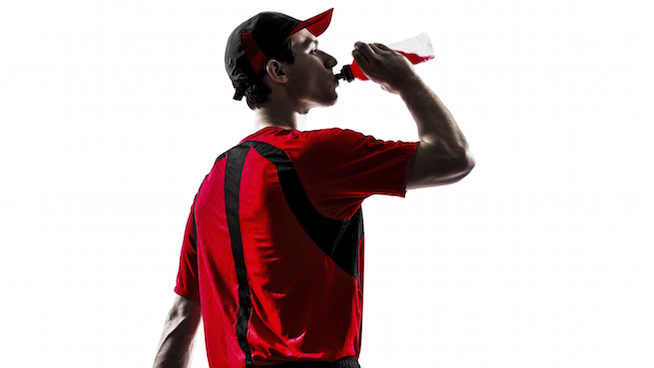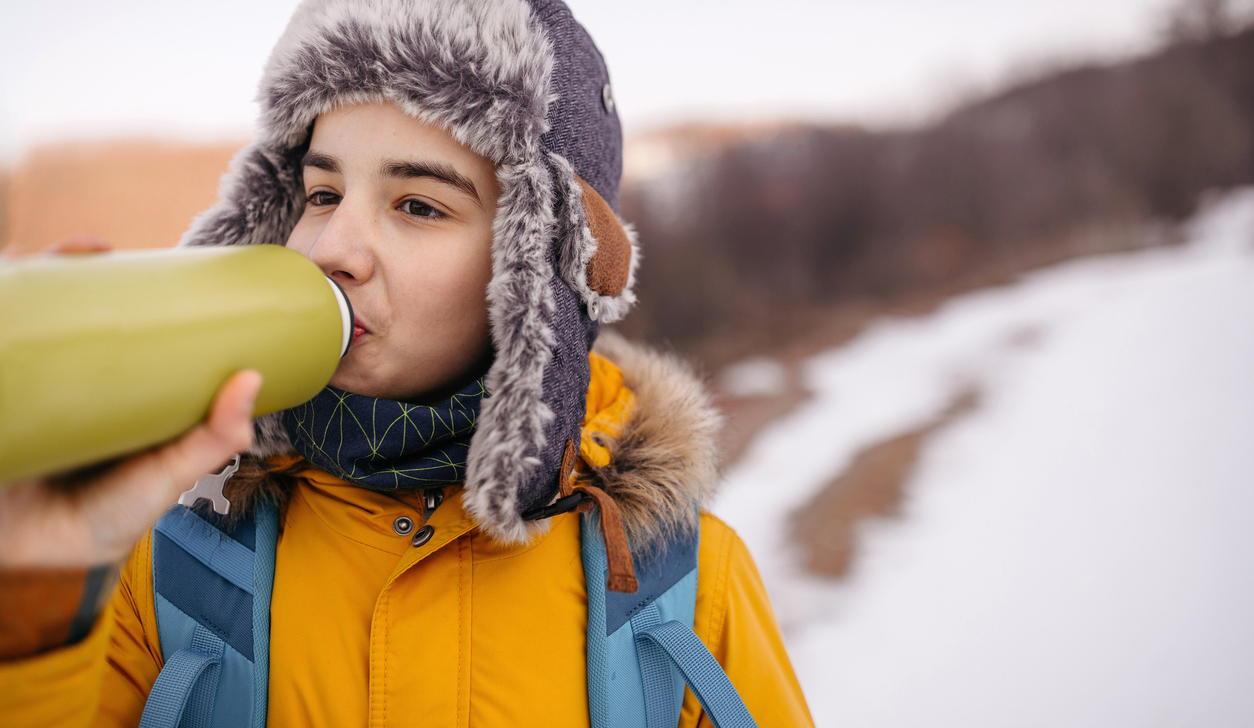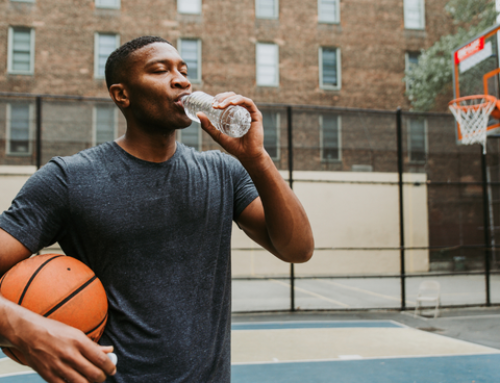5 Hydration Myths, Debunked
![]()
Water is an integral part of our body’s functions and an integral part of an athlete’s lifestyle. Good water intake is crucial to maintaining health and keeping your body in shape.
However, a few hydration myths exist around this liquid necessity. Not everything you’ve heard about water intake is true. Here are five myths about water debunked.
1. You can’t overdose on water
First of all, you probably aren’t drinking enough water to overdose on it yourself, so relax. But water, like everything else in life, can be harmful in excess.
Chugging too much water can result in hyponatremia, a condition characterized by low electrolytes in your blood. This is because your kidneys can’t extract all the water you consume, diluting your blood excessively.
Although most people rarely run the risk of over hydrating, endurance athletes are more likely to reach that point. It’s important for such athletes to curb excessive water intake.
A fear of not drinking enough might prompt some athletes to overconsume water, but that may be because they’ve been misled on how to gauge their own thirst.
RELATED: How Much Water Should Athletes Drink Every Day?
2. If you’re thirsty you’re already dehydrated

It’s a commonly repeated myth that the first signs of thirst mean you’ve already waited too long for your next drink, and your body is dehydrated. But that’s not true. Your body is probably communicating just fine.
“Thirst should provide adequate stimulus for preventing excess dehydration and markedly reduce the risk of developing exercise-associated hyponatremia in all sports,” reads an article on hyponatremia published in the Clinical Journal of Sport Medicine.
In other words, thirst is precisely your body’s way to gauge whether you need water. It’s perfectly natural to rely on thirst to gauge your hydration needs, and it should keep you on the right track for water intake.
RELATED: Tips to Avoid Dehydration
3. Only water hydrates you

Although it’s common to claim that soda, coffee, tea and juices don’t count toward your daily water intake, that’s simply not true.
All of those liquids contain ample water, even if it’s mixed with other ingredients. Your kidneys are there to filter liquids, and that includes extracting water. Anything with water will hydrate you.
Although it’s true that caffeine is a diuretic, studies have found that coffee (and weaker drinks) still hydrates your body similar to other drinks.
The same is true for fruits, vegetables and other foods with significant water content. So don’t worry, if you aren’t drinking pure water you’re still hydrating.
4. Sports drinks are better than water for athletes
On the other hand, a common belief is that sports drinks like Gatorade and Powerade are better for exercise, working out or sports hydration. However, in most cases water is still the better choice for athletes. The amount of sugar in sports drinks counteracts most of its health benefits, and they are unnecessary for most workout sessions.
Endurance athletes may have a little more reason to turn to sports drinks. “The sports drinks have an advantage in activities lasting more than an hour because the 6% glucose has been shown to improve performance in sports, and you may need electrolyte replacement with prolonged sweating,” said Cary Raffle, a certified trainer at NYSC.
For the average athlete, however, water will do just fine.
RELATED: Water or Sports Drinks: What to Drink When?
5. You should drink a lot of water just before activity

In a panic over dehydration, you may choose to chug down a bottle or two of water before a race or game to prepare yourself. In reality, though, you’re just putting a lot of liquid in your stomach before jostling it around and not doing much for your immediate hydration.
Rather than downing water just before you begin an activity, you should begin hydrating at least 36 hours before your event. This will ensure that your body has been able to process and absorb the water and that all systems are fully hydrated.
Drinking water seems like a pretty straightforward deal, but misinformation and myths still persist today. Good athletes should learn the role water plays in aiding their bodies and how to best use it.
[cf]skyword_tracking_tag[/cf]RECOMMENDED FOR YOU
MOST POPULAR
5 Hydration Myths, Debunked
![]()
Water is an integral part of our body’s functions and an integral part of an athlete’s lifestyle. Good water intake is crucial to maintaining health and keeping your body in shape.
However, a few hydration myths exist around this liquid necessity. Not everything you’ve heard about water intake is true. Here are five myths about water debunked.
1. You can’t overdose on water
First of all, you probably aren’t drinking enough water to overdose on it yourself, so relax. But water, like everything else in life, can be harmful in excess.
Chugging too much water can result in hyponatremia, a condition characterized by low electrolytes in your blood. This is because your kidneys can’t extract all the water you consume, diluting your blood excessively.
Although most people rarely run the risk of over hydrating, endurance athletes are more likely to reach that point. It’s important for such athletes to curb excessive water intake.
A fear of not drinking enough might prompt some athletes to overconsume water, but that may be because they’ve been misled on how to gauge their own thirst.
RELATED: How Much Water Should Athletes Drink Every Day?
2. If you’re thirsty you’re already dehydrated

It’s a commonly repeated myth that the first signs of thirst mean you’ve already waited too long for your next drink, and your body is dehydrated. But that’s not true. Your body is probably communicating just fine.
“Thirst should provide adequate stimulus for preventing excess dehydration and markedly reduce the risk of developing exercise-associated hyponatremia in all sports,” reads an article on hyponatremia published in the Clinical Journal of Sport Medicine.
In other words, thirst is precisely your body’s way to gauge whether you need water. It’s perfectly natural to rely on thirst to gauge your hydration needs, and it should keep you on the right track for water intake.
RELATED: Tips to Avoid Dehydration
3. Only water hydrates you

Although it’s common to claim that soda, coffee, tea and juices don’t count toward your daily water intake, that’s simply not true.
All of those liquids contain ample water, even if it’s mixed with other ingredients. Your kidneys are there to filter liquids, and that includes extracting water. Anything with water will hydrate you.
Although it’s true that caffeine is a diuretic, studies have found that coffee (and weaker drinks) still hydrates your body similar to other drinks.
The same is true for fruits, vegetables and other foods with significant water content. So don’t worry, if you aren’t drinking pure water you’re still hydrating.
4. Sports drinks are better than water for athletes
On the other hand, a common belief is that sports drinks like Gatorade and Powerade are better for exercise, working out or sports hydration. However, in most cases water is still the better choice for athletes. The amount of sugar in sports drinks counteracts most of its health benefits, and they are unnecessary for most workout sessions.
Endurance athletes may have a little more reason to turn to sports drinks. “The sports drinks have an advantage in activities lasting more than an hour because the 6% glucose has been shown to improve performance in sports, and you may need electrolyte replacement with prolonged sweating,” said Cary Raffle, a certified trainer at NYSC.
For the average athlete, however, water will do just fine.
RELATED: Water or Sports Drinks: What to Drink When?
5. You should drink a lot of water just before activity

In a panic over dehydration, you may choose to chug down a bottle or two of water before a race or game to prepare yourself. In reality, though, you’re just putting a lot of liquid in your stomach before jostling it around and not doing much for your immediate hydration.
Rather than downing water just before you begin an activity, you should begin hydrating at least 36 hours before your event. This will ensure that your body has been able to process and absorb the water and that all systems are fully hydrated.
Drinking water seems like a pretty straightforward deal, but misinformation and myths still persist today. Good athletes should learn the role water plays in aiding their bodies and how to best use it.
[cf]skyword_tracking_tag[/cf]












